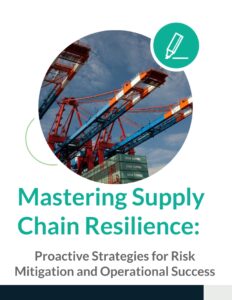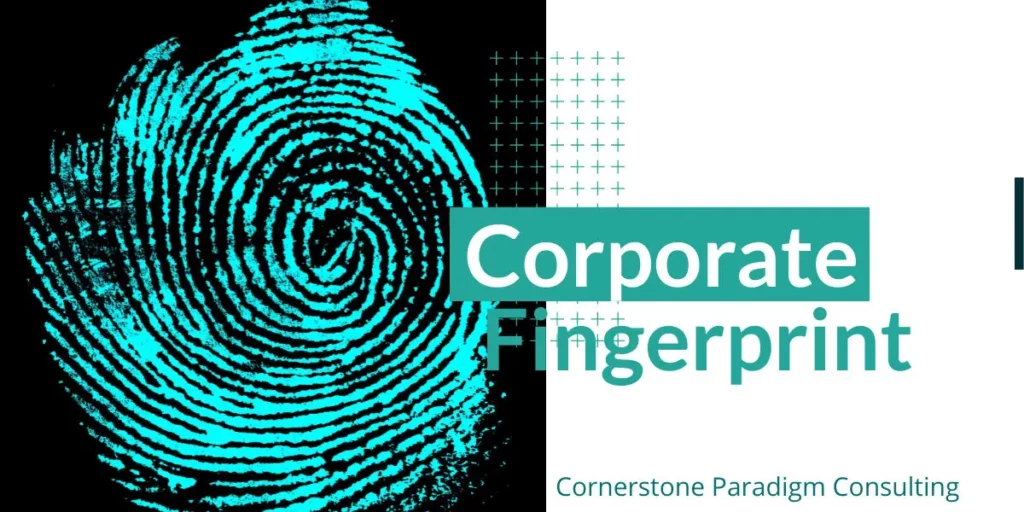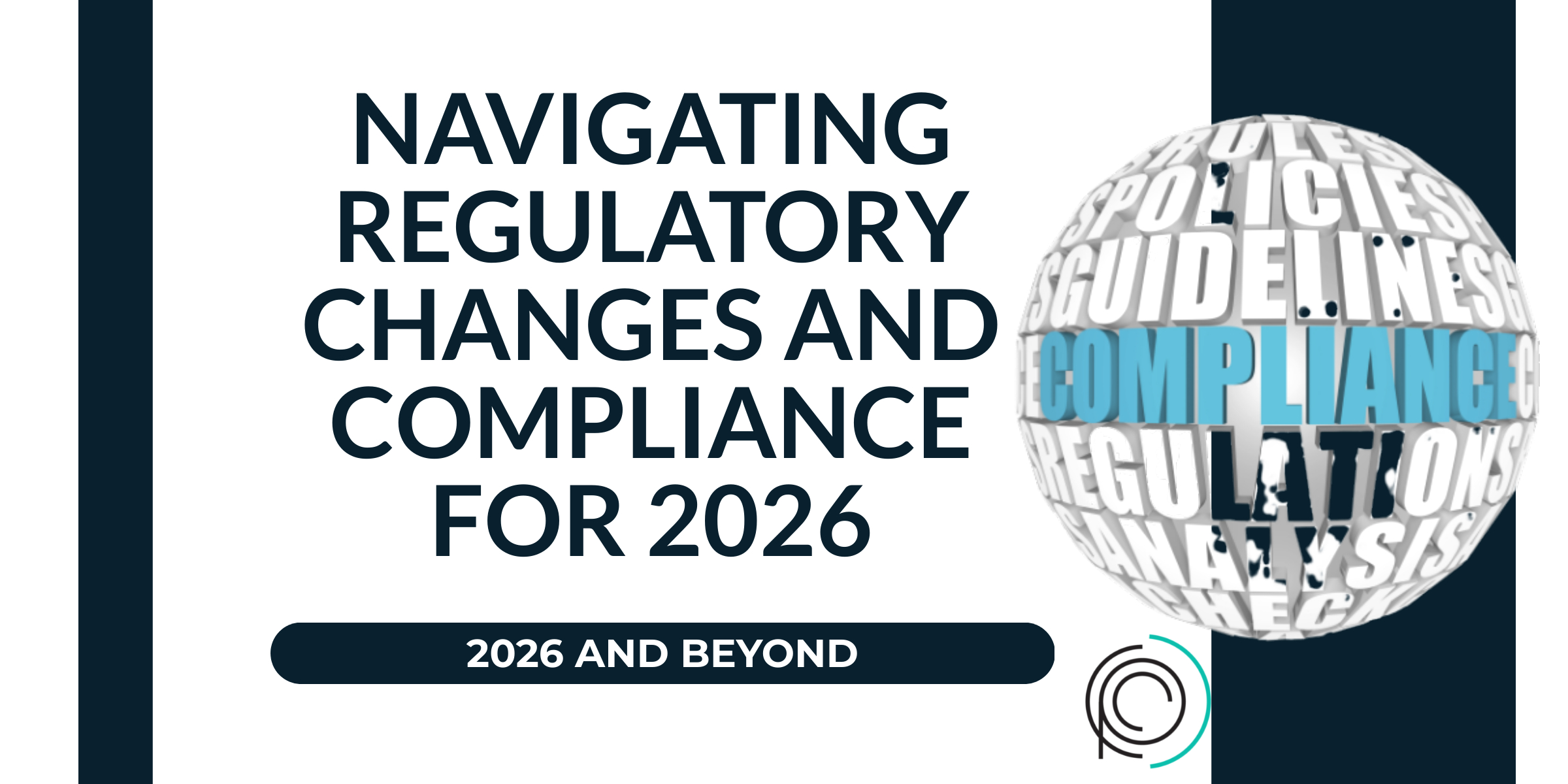Beyond Products: Unveiling Your Unique Corporate Cultural Fingerprint for Lasting Impact
In a world full of noise, there’s more to what you bring to the table than just your products. Who are you as a business, and what do you represent? In other words, what’s your corporate cultural fingerprint?
Every organization has an underlying system or structure that shapes its operations and culture. Whether formally recognized or not, this system is always at work in the background, influencing decisions and guiding the organization’s direction. Even if you choose not to acknowledge its presence, it continues to operate, subtly affecting every aspect of the organization’s function. Let’s define exactly what a cultural fingerprint is, why it matters, and how to find yours.
What is a corporate cultural fingerprint? Ultimately, a corporate cultural fingerprint is a kind of identity that dictates what makes two businesses different. Like a real fingerprint, it’s a unique identifier and determines the difference in how organizations conduct themselves.
Part of understanding a company’s essence revolves around its values. Does the company prioritize quality in its offerings? Is there a clear emphasis on transparency within the organization? How about efficiency in operations or a commitment to sustainability? These questions are pivotal in defining what a company stands for. However, it’s not just about the explicit values listed on a website or a poster; it’s also deeply about the underlying assumptions and beliefs that guide day-to-day actions and decisions. For instance, one company might operate under the implicit assumption that employees are expected to stay late and finish their work whenever necessary, reflecting a value placed on dedication and commitment. In contrast, another company might prioritize the team’s wellbeing over immediate results, believing that a healthy work-life balance leads to long-term success.
This implicit and often unspoken aspect of a company’s culture, which can aptly be termed its “fingerprint”, acts as a unique identifier, setting it apart from its competitors in a significant way. It’s these nuanced, less visible elements of culture that imbue a company with its distinct character and ethos. On the surface, two organizations might seem indistinguishable, especially when considering the missions, visions, and values they proudly display on their respective websites. However, it’s the deeply ingrained cultural fingerprints that truly differentiate one company from another, shaping the experiences of both employees and customers alike.
However, in practice, these companies could operate in vastly different ways, adhering to distinct internal beliefs and processes. This discrepancy between stated values and actual practices can sometimes lead to confusion among employees, clients, and stakeholders. Understanding the true fingerprint of a company requires looking beyond the surface, delving into the daily operations, employee experiences, and the subtle cues that reveal a company’s genuine priorities and beliefs.
Why your corporate cultural fingerprint matters If you’ve ever worked for multiple organizations, you’ll know there were subtle (or perhaps large) differences in how they operated. But this isn’t always the easiest thing to articulate. Once you’re aware of your corporate cultural fingerprint, it becomes something you can use to create a more concrete framework, improve your processes, and attract the right people.
For instance, should you discover that your corporate culture places an unparalleled emphasis on customer service, this insight allows you to position it as the core of the majority of your operational processes. By doing so, you signal to your team that it’s permissible, even encouraged, to sacrifice a degree of efficiency in favor of enhancing customer service. The key to success here lies in consistency and transparency in all your communications and actions. This strategic focus not only aligns with your corporate values but also fosters a stronger sense of identity and unity among team members. Everyone gains a clear understanding of the goals they are collectively working towards, which boosts morale and productivity.
Furthermore, when you engage with external consultants or go through the process of onboarding new employees, having a well-defined and communicated corporate culture centered around customer service streamlines their acclimatization. They can quickly grasp the essence of what your organization stands for and what it prioritizes, thus integrating more seamlessly into the team. This not only benefits the new members by making their transition smoother but also benefits the organization as a whole by ensuring that everyone is aligned and moving in the same direction towards a common goal. Ultimately, this strategic approach enhances the overall performance of the organization and reinforces its commitment to outstanding customer service.
How to find your corporate cultural fingerprint Now you have a better idea of what a corporate cultural fingerprint is and why it matters, you hopefully want to find your own. Many people mistakenly believe that a company’s identity can be swiftly created during a single brainstorming session among executives. However, this approach is unlikely to yield an accurate or meaningful representation of the essence and values of your company. Building a true company identity requires time, reflection, and input from various stakeholders to ensure it resonates with both the team and the target audience. We break this down into three crucial aspects:
- People
- Processes
- Customer service
- Technology
People
One of the key determinants of corporate culture is the style of leadership within an organization. This raises several important questions: Are your leaders cultivating a culture that values collaboration over competition, or is it the other way around? Are they champions of innovation, constantly encouraging new ideas and approaches, or do they prefer to stick with traditional methods that have stood the test of time? Another crucial aspect is whether the organization actively works towards enhancing diversity among its workforce, recognizing the strength that comes from different perspectives and backgrounds. Furthermore, in today’s fast-evolving workplace environment, how flexible are you in accommodating your employees’ needs? For instance, do you support and promote flexible working arrangements like remote working? This can be a significant factor in boosting employee engagement and satisfaction.
Processes
A company’s processes say everything about what its priorities are and how it approaches tasks. Is it putting performance or customer service first? Are processes still the same as one decade ago, or are they dynamic and always changing? Is a firm taking an agile approach, or are projects highly bureaucratic and regimented? Do you give everyone a safety brief, or do you figure that it’s an unnecessary bureaucracy you can skip?
Technology
The relationship between technology and organizational culture might not be obvious, but it has links with other areas. Tech can also be used to promote professional growth, development, and learning. It can also facilitate remote working, which can impact employee satisfaction and engagement. The type of technology a company invests in and how it is used speaks volumes about the organization’s priorities.
As you can see, determining and understanding your corporate cultural fingerprint requires delving into various aspects of your organization. By taking a closer look at each area discussed above, you will gain valuable insights into the true values, priorities, and beliefs of your company. It is crucial to regularly reassess and refine these aspects as your organization grows and evolves, ensuring that your corporate culture remains true to its core values. By doing so, you will attract the right people, enhance collaboration, and ultimately drive success for your organization. So take the time to discover your corporate cultural fingerprint – it may just be the key to unlocking your organization’s full potential. So take the time to discover your corporate cultural fingerprint – it may just be the key to unlocking your organization’s full potential. By continuously striving towards aligning all aspects of your company with a well-defined and communicated corporate culture, you will foster a strong sense of identity, unity, and success within your team.
Customer service
As previously discussed, it’s clear that certain businesses prioritize customer satisfaction more than others. The manner in which a company interacts with its customers and adheres to established processes to safeguard their interests significantly contributes to its unique identity. This emphasis on customer care is not just about resolving issues but about creating a positive, lasting relationship that encourages loyalty and trust. Understanding and prioritizing customer needs can set a business apart in a competitive landscape, making its dedication to service a key aspect in its brand fingerprint.
Ready to take your fingerprint?
Your corporate cultural fingerprint, though intangible, plays a crucial role in the success of your organization. Yet, many organizations tend to underestimate its significance due to its abstract nature. Furthermore, accurately describing your own culture can be challenging, primarily because much of it is based on assumptions, traditions, or unspoken beliefs that have been ingrained over time. This is where the value of an external perspective becomes evident. Bringing in a third party to observe, analyze, and unpack the nuances of your corporate culture can be incredibly beneficial.
This approach is particularly advantageous prior to undergoing significant changes, such as a business transformation process. An external consultant can help you to understand and articulate your cultural strengths and weaknesses, thereby enabling you to leverage them to your advantage or address them effectively.
At our firm, we specialize in dissecting and understanding the unique cultural fingerprint of your organization. We’re committed to helping you enhance your operations and overall performance by aligning your culture with your strategic goals. If you’re interested in gaining deeper insights into your corporate culture and exploring ways to improve it, contact us to schedule a comprehensive consultation. Our team is here to provide the expertise and support you need to thrive.






